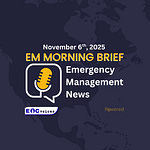The Writing Lessons of Carl Franklin Braun: A Guide to Clear Thinking and Effective Communication

I came across an article about an innovative leader Carl Braun. What interested me was his approach to communication. Braun believed that the way people communicated was a reflection of their thought processes. To change how someone thought, they needed to change how they wrote and spoke.
Many people make the mistake of writing to sound intelligent rather than writing to be useful. This approach can significantly diminish the impact of one's message. The more difficult it is for people to understand, the less likely they are to engage with the message.
Instead, Braun encouraged people to strive for simplicity and clarity in their communication. The goal should be to write in an easily understood way as if writing for oneself. While this may seem simple, it can be challenging.
Writing clearly and helpfully requires clear thinking. However, clear thinking is only sometimes automatic. They are writing forces one to slow down and think through their ideas, leading to new insights and a better understanding of the topic.
Overall, Braun believed that effective communication required clear thinking and writing. By writing in an easily understood way, one can increase the impact of their message and promote greater engagement with their ideas.
So who was Carl Franklin (C.F.) Braun? He graduated from Stanford with an engineering degree in 1907 and, within two years, opened his engineering firm.
Braun’s company would manufacture and engineer products ranging from water filters to petroleum processing plants and large, complicated projects involving staffing and precision. He eventually employed 6,000 people, built over 250 petrochemical plants, and was respected as the leader in his field for many years.
Braun had a unique corporate policy: If you were going to issue a directive, you had to tell the person Who, What, When, Where, and most importantly, Why someone was to do it. So strong was his belief in using why. It was said that Braun could fire you on the spot if he found you not issuing reasons.
Braun believed that clear thinking and writing were essential for success in any field, and he imparted this wisdom to his employees through a series of writing lessons that he developed. These lessons focused on clear and concise writing principles and using concrete examples to support arguments.
One of the critical principles of Braun's writing lessons was the importance of understanding the audience. Effective communication requires more than just getting your message out; it also requires that your message be received and understood by the intended audience. This is particularly true in emergency management, where clear communication can be a matter of life and death.
Braun understood that different audiences have different needs, preferences, and expectations and that effective communication requires tailoring the message to meet those needs. For example, a message to emergency responders might need to include technical details and jargon that would be lost on the general public. On the other hand, a message to the general public might need to be simplified and use plain language easily understood by everyone.
In emergency management, understanding the audience is particularly important when communicating risks and hazards. People have a natural tendency to downplay risks and overestimate their ability to handle emergencies, so framing the message to resonate with the audience and motivate them to take action is essential.
Braun's principle of understanding the audience can also be applied to social media and other digital communication channels. Each platform has its audience with its unique preferences and expectations. Effective communication requires tailoring the message to the specific platform and audience.
Understanding the audience is crucial to effective communication and is particularly important in emergency management. By tailoring the message to the audience, emergency managers can ensure that their messages are received and understood in the intended way, increasing the chances of a successful response.
Another fundamental principle of Braun's writing lessons was the importance of clarity and simplicity. He believed writers should avoid jargon, technical terms, and other unnecessary complexity that could confuse or alienate the audience. Instead, writers should strive for simplicity and clarity, using straightforward language and clear, concise sentences.
In emergency management, clarity and simplicity are essential for effective communication. During a crisis, people may be stressed, anxious, or overwhelmed and have difficulty understanding complex or technical language. Emergency managers need to be able to convey critical information in a way that is easily understood by everyone, regardless of their background or education level.
Braun's principle of simplicity also applies to the format of the message. In emergency management, it's important to use easily digestible formats, such as bullet points, infographics, or short videos. Using visual aids and other formatting techniques, emergency managers can make their messages more engaging and easier to understand.
Finally, Braun believed simplicity and clarity were essential for the audience and the writer. By simplifying the message and avoiding unnecessary complexity, writers can clarify their thinking and ensure they communicate their ideas effectively.
Braun's emphasis on simplicity and clarity in writing is essential for effective communication, particularly in emergency management. By using straightforward language, clear sentences, and easily digestible formats, emergency managers can ensure that their messages are easily understood and acted upon, increasing the chances of a successful response.
An essential principle of Braun's writing lessons was using concrete examples to support arguments. He believed that abstract concepts and ideas could be difficult to understand and remember but that concrete examples could make complex ideas more tangible and easier to grasp. Using concrete examples to illustrate key points, writers could make their arguments more persuasive and memorable.
In emergency management, using concrete examples can be particularly important when communicating risks and hazards. For example, rather than simply stating a risk of flooding in an area, emergency managers could use concrete examples of past floods and the damage they caused to illustrate the potential consequences of not taking action. This can help people understand the seriousness of the situation and motivate them to take appropriate precautions.
Using concrete examples can also be helpful when communicating complex technical information. For example, emergency managers could use analogies or comparisons to familiar objects or concepts to help people understand technical terms or processes. This can make the information more accessible and easier to remember.
In addition, using concrete examples can also help build credibility and trust with the audience. Emergency managers can demonstrate their expertise and build confidence in their recommendations by providing real-world examples of the effectiveness of specific measures or strategies.
Using concrete examples is an important principle of effective communication, particularly in emergency management. Using real-world examples to support arguments and make complex ideas more tangible, emergency managers can make their messages more persuasive, memorable, and engaging.
Braun's emphasis on clear thinking and effective communication through writing was not just a theoretical idea – it was implemented in his engineering firm. His employees were required to follow his writing lessons and communicate with each other and clients clearly and concisely. This approach helped to foster a culture of open communication and collaboration, which was critical to the company's success.
Braun provided his employees with regular training in effective communication to implement this approach. He believed that effective communication was a skill that could be learned and developed, and he encouraged his employees to improve their writing and communication skills continually. This approach helped to ensure that everyone in the company was on the same page and working towards the same goals.
One of the key benefits of this approach was that it helped to promote open communication and collaboration within the company. By encouraging employees to communicate clearly and concisely, Braun created an environment where everyone felt comfortable sharing their ideas and perspectives. This, in turn, helped foster creativity and innovation, as employees could work together to develop new and innovative solutions to complex problems.
In addition, Braun's emphasis on clear communication also helped to improve the company's relationships with its clients. By ensuring that all communication was clear and easy to understand, Braun could build trust and credibility with his clients. This, in turn, helped to attract new business and retain existing clients, which was critical to the company's success.
Braun's emphasis on clear thinking and effective communication through writing was not just a theoretical idea – it was implemented in his engineering firm. By promoting open communication and collaboration and encouraging employees to improve their communication skills continually, Braun created a culture of innovation and success that helped his company become a leader in its field.












